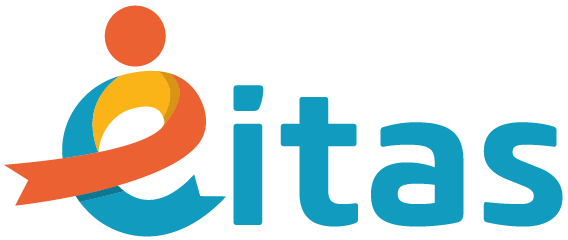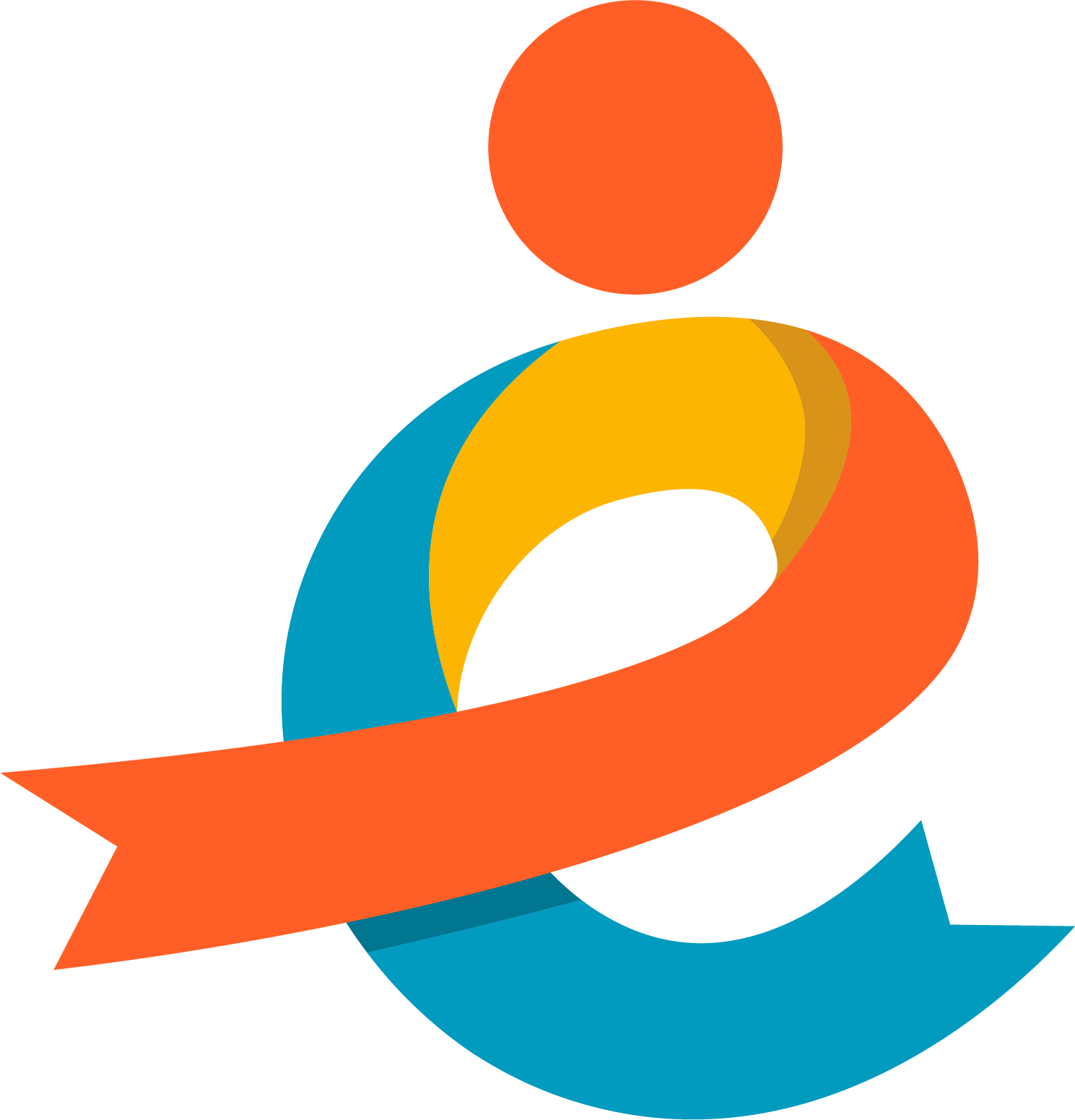Mental Health for Everyone: Addressing the Needs of Individuals with I/DD
May was Mental Health Awareness Month, and at eitas, we dedicated time to shine a spotlight on the importance of mental health for everyone. For us, this means addressing and supporting the mental health needs of individuals with intellectual and developmental disabilities (I/DD) despite prevalent misconceptions, even among health and mental health professionals.
Individuals with I/DD are at a high risk of experiencing co-occurring mental health conditions. Very often, this includes major depressive disorder, bipolar disorder, anxiety disorders, psychotic illnesses, impulse control disorders and more. These complex and overlapping conditions often require specialized care within the mental health service system. However, treatment in these settings is often not good enough, lacking the flexibility, knowledge and skill to meet the unique needs of people with I/DD.
One significant challenge that impacts mental health care for individuals with I/DD is diagnostic overshadowing. This occurs when health professionals make the assumption that a person’s behavior or reported experiences are solely due to their disability without exploring other factors. Diagnostic overshadowing can lead to other co-existing conditions remaining undiagnosed and untreated.
In our commitment to supporting the mental health needs of individuals with I/DD, we asked some members of the eitas community to share their stories and experiences about their mental health journeys. Dominique, a peer support mental health advocate, who provides a firsthand perspective on the challenges and triumphs experienced by those navigating mental health and I/DD. And Patrick, who receives eitas support, shares his experience pursuing mental wellness during a dark time in his life.
Dominique: Support in the Intersection of I/DD and Mental Wellness
Peer support specialists draw from their own experience with I/DD to connect individuals to community resources and people who can be a support to them. As a peer support specialist, Dominique has experienced her own journey with disability and mental health, emerging as a successful, independent self-advocate.
Question: Could you describe your role at eitas and how that specifically intersects with mental health advocacy?
Dominique: I work for Mental Health America of the Heartland, and they have a partnership with eitas. I go to eitas to be peer support for those struggling with their mental health. Eitas is really an advocacy agency. I have learned a lot from living life with an Attention Deficit Hyperactivity Disorder (ADHD) diagnosis and a mental health diagnosis, so I help those with intellectual disabilities who are struggling with their mental health by using my own experiences to support them and provide resources that I've had or that are available to them.
Question: Can you give an example of how you connect individuals with resources?
Dominique: Depending on their needs, I reach out to other individuals in the Community Outreach department. They have a community resource specialist, so I would talk to him a lot because he knows community resources. I also collaborate with support coordinators. I talk to them by phone or email to find out what's going on, what they've done, what they haven't done, and what they're willing to try. Then I do my research and ask my team and their support coordinators where we go from here to help.
Question: What are some common misconceptions or challenges you've encountered as you advocate for individuals in the I/DD community who have mental health challenges?
Dominique: One of the biggest misconceptions is that individuals with intellectual disabilities can't live independent lives, hold jobs, or have kids. Obviously, a lot of people have different needs and different levels of severity. You must meet people where they're at, but the automatic assumption is that all individuals have severe needs all the time. This often leads caregivers to treat individuals as not having the capability to be independent, which is infantilizing. For the most part, I see this with family caregivers. I understand it to some extent because when you grow up with or raise an individual with I/DD and have been their support system for so long, it’s difficult to see them as having the potential to be independent adults. In my role, I help advocate in those situations.
Question: Have you or the individuals you work with encountered instances of diagnostic overshadowing?
Dominique: I've seen it both towards myself and the people I work with. Medical professionals often focus on one aspect and not the other. This goes along with the historic infantilization of individuals with disabilities. When an individual gets frustrated at not being heard, they're treated like a child having a tantrum instead of an adult expressing frustration. We're currently working with someone who feels disrespected and dismissed by their doctor. Her pain isn't taken seriously, and we're all working together to find a different specialist for her.
Question: This may be a difficult question, but how do you go about finding a provider that accounts for the full picture of what an individual might be experiencing?
Dominique: It's really hard. It takes a lot of support, research, and sadly, a lot of failures. Even with guidance from agencies like eitas and Mental Health America, a lot of the time we reach a point where we acknowledge that a particular resource or provider sounded good on paper but didn't work, and we have to try something else.
For a lot of people, they come back with the news that a resource wasn’t working, and it’s just, “Okay—that happens to everybody. Let’s go back to the Community Outreach department and try something new.” For others, it's disheartening and discouraging. Depending on resources, it can get really expensive, especially for individuals who are their own guardians and don’t have the ability to do trial and error over and over. Sometimes, allowing yourself to take a break and then coming back to figure it out is okay.
Question: As a mental health advocate, what message would you like to convey about the importance of prioritizing mental health within the I/DD community?
Dominique: I think the biggest thing I could say is that the brain is complicated. It's okay if you don't understand what a person is going through; they understand it. Support is more important regardless, and some people need extra support. At the end of the day, we're humans dealing with the complexities of the brain. We can't ignore that, but also, we are not just the diagnosis. We exist outside of that. Life is difficult for everybody, so don't be the reason that it's harder for somebody else.
Patrick: No one is a lost cause
Patrick, a student and eitas-supported community member, has ASD (Autism Spectrum Disorder). Not too long ago, Patrick experienced repeated negative experiences with his local community and workplace that left him feeling threatened and unsafe. During the lowest and darkest part of these experiences, Patrick began to think he wanted to kill himself. At the time, Patrick felt like there was no way out, and nothing would get better. But Jasmine, an Autism Resource Specialist at eitas, encouraged Patrick to seek out mental health care for himself. He was connected with a mental health care specialist at eitas named Lori.
Working with Lori, things began to change for Patrick. He utilized resources and practices that addressed his mental health and well-being in ways that helped him turn a lot of negatives into positives. Patrick shared that he experienced his mental health journey as a parallel to a movie series he was watching at the time, where the first part pointed to despair, and the sequel was one of rebuilding, restoring and, in the end, “showing a person he can keep living.”
Asked about what it was like to have people make assumptions about his mental health, Patrick said, “Working in customer service, there's going to be a lot of customers who assume a lot of things about you because you're autistic. Autism is a spectrum. It means we can do a lot of things and we have a lot of problems with a lot of other things. It's complicated. And you can't just apply a single blanket label to all of us.” Patrick also shared how seeking help for mental health care and making it a priority isn’t easy but he added, “You should do it. No one’s a lost cause and there’s always something that can be done.”


